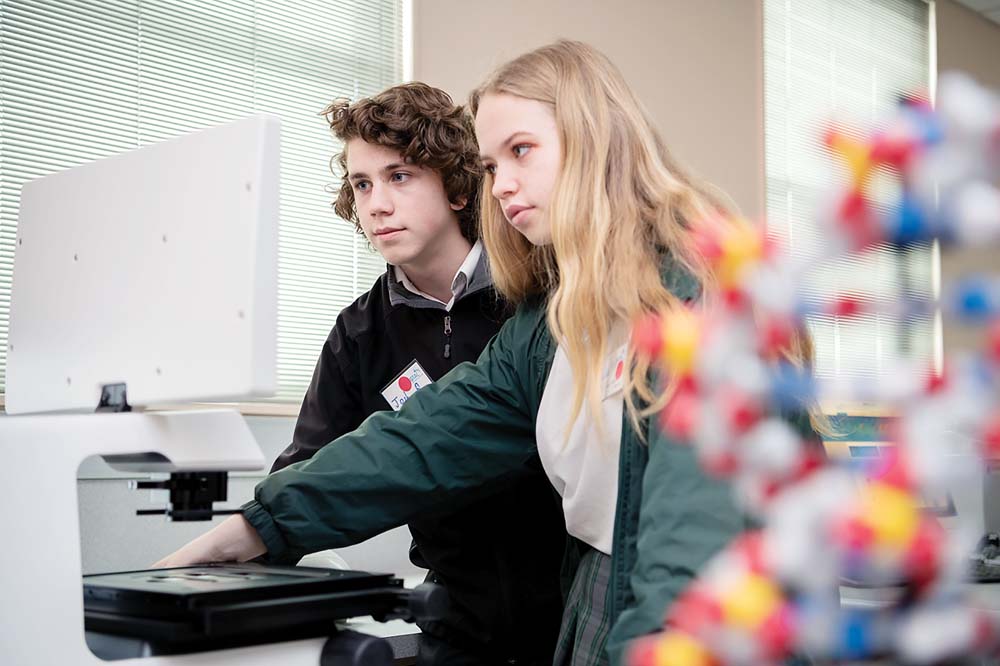
ROSEBUD Secondary College students took a peek into the fascinating world of biomedical sciences at the fifth annual Biomedical Sciences Day in Parkville last week.
They were among 60 years 10 and 11 students from regional and rural Victoria to attend the event which gave them a rare opportunity to experience life as a biomedical scientist.
The event was presented by the School of Biomedical Sciences, University of Melbourne, and the Gene Technology Access Centre (GTAC).
Professor Matthew Watt, head of the university’s Department of Physiology, encouraged the students to think about the science behind what creates, sustains and threatens people’s lives here and overseas. He shared his journey into biomedical academia, including his laboratory’s ground-breaking research into the pathogenesis of fatty liver disease and diabetes.
Prof Watt discussed some of the revolutionary work under way at the school and at GTAC, including: Biological processes – how and why researchers now have a better understanding of human health; 3D printing to replace bones; Genomics – new tools for cancer treatments, and new vaccines to combat disease.
Students worked alongside researchers to photograph specimens using light, fluorescence and scanning electron microscopes. They entered their images into the university’s Under the Microscope competition.
They also took a behind-the-scenes look at the university’s Harry Brookes Allen Museum of Anatomy and Pathology and uncovered real tissue specimens and historical anatomical models. Later, at a tour of the Virtual Reality Learning Studio, they experienced how cutting-edge digital technology is used to study the human body.
The Rosebud students loved both the learning studio and the museum and were said to be fascinated by the virtual human hearts.
They also learned about Access Melbourne, a program that helps students from rural or regional areas gain entry to undergraduate courses at the university. Each year, 20 per cent of domestic undergraduate places are reserved for Access Melbourne applicants.
First published in the Southern Peninsula News – 10 September 2019